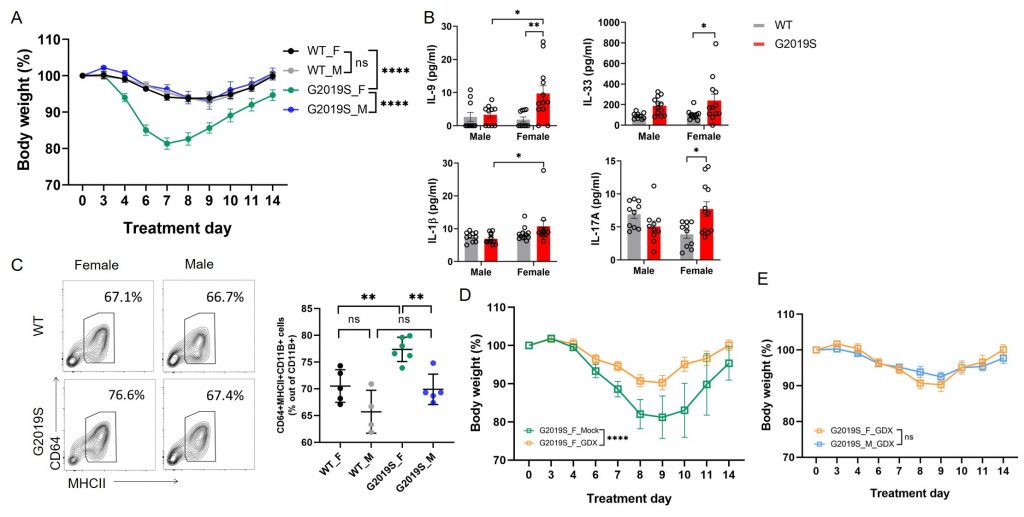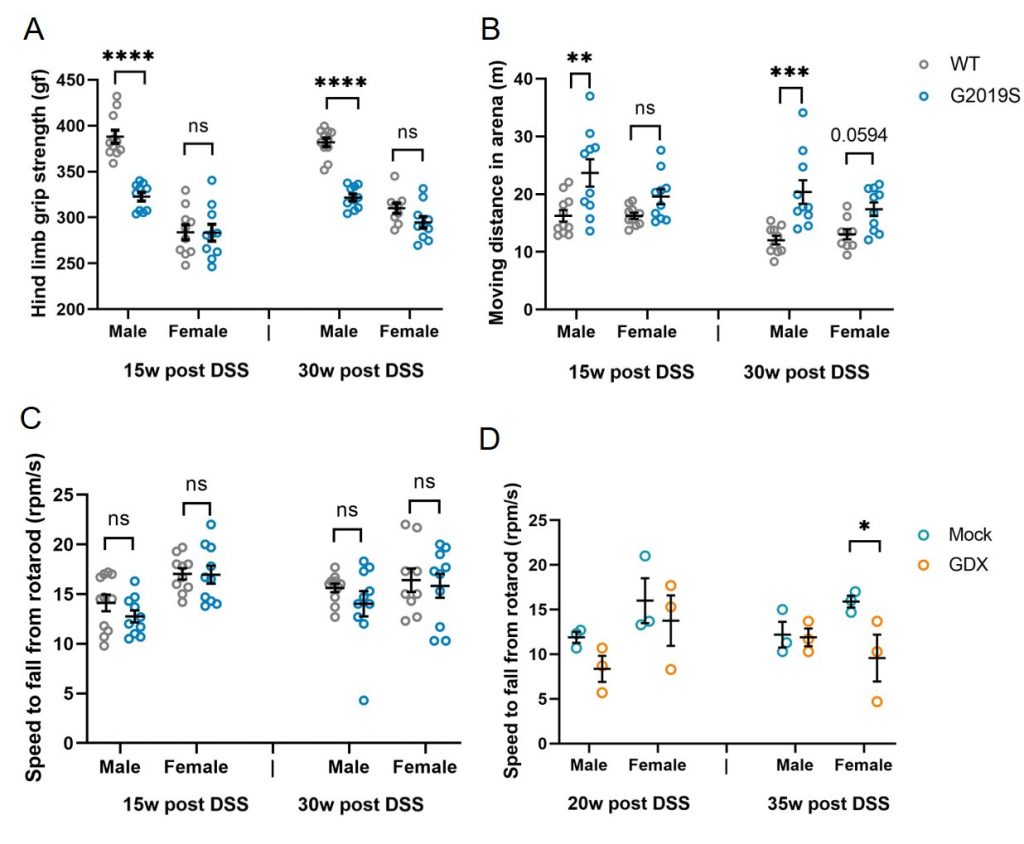Dissecting Contributions of Prodromal Intestinal Inflammation to the Manifestation of Parkinson’s Disease
Ping Fang, Lewis Yu, Hannah Espey, Yongning Deng, Hayley Hrncir, Arthur P. Arnold, Elaine Y. Hsiao
Department of Integrative Biology & Physiology. University of California, Los Angeles. Los Angeles, CA 90095.
Inflammation and immune dysregulation are increasingly implicated in the pathogenesis of Parkinson’s disease (PD). Abnormalities in immune function and cellular distributions have been widely reported across the innate and adaptive arms of the enteric, systemic and neuro-immune systems in PD. In addition, immunological disorders, such as inflammatory bowel disease (IBD) are highly co-morbid with PD, and mutations in leucine-rich repeat kinase 2 (LRRK2) are genetic risk factors for both PD and IBD. Gastrointestinal disruptions, such small intestinal bacterial overgrowth and constipation, are characteristic of the prodromal stages of PD. Moreover, Both gut inflammation and PD exhibit sex differences in incident rate and severity. Males show higher risk in ulcerative colitis, aligning with the sex difference in incidence of PD. While accumulating studies highlight potential interactions between immune dysregulation in gastrointestinal tract and PD, little is known regarding the molecular and cellular mechanisms underlying these phenomena. Here, we provide evidence that LRRK2 G2019S (GS) mutation, the most common monogenetic cause of PD, increases susceptibility to gut inflammation and alters gut immune response in a sex-dependent manner. In particular, we find that ovarian hormones exacerbate gut inflammation and alter macrophage responses conferred by GS mutation (Fig. 1). Moreover, the resultant gene-environment interactions expedite the onset of PD symptoms. Consistent with sexual dimorphisms observed in PD and IBD, we interrogate sex differences observed in the interactions between intestinal inflammatory challenge and genetic risk for PD (Fig. 2). Aged males but not females with GS mutation, who experienced early gut inflammation develop more severe motor impairments. For this phenotype, ovarian hormones exert protective effects on PD symptoms that are exacerbated by the interaction between LRRK2 genetic susceptibility and prodromal intestinal inflammation. Findings from this research begin to uncover mechanistic underpinnings that underlie associations between immune dysfunction, IBD and PD, as well as the biological bases of sexual dimorphisms in symptom severity.
 |
|
| Fig. 1. Sex-specific effects of human LRRK2 G2019S mutation on gut inflammation. (A) Mean body weight (±SEM) as a percent of starting weight of male (M) and female (F) LRRK2G2019S transgenic mice and wildtype littermates (WT). (B) Circulated proinflammatory cytokines of mice given DSS for 7 days.(C) Colonic macrophages were analyzed from mice given DSS for 7 days. (D) Mean body weight (±SEM) as a percent of starting weight of female LRRK2G2019S Tg mice with gonadectomy and mock surgery. (E) Mean body weight (±SEM) as a percent of starting weight of female and male LRRK2G2019S Tg mice with gonadectomy. Data in (A) are representative of n>10 for each group, ****P < 0.0001 by two-way ANOVA. Data in (B) are n=5 per group shown in replicated trials, *P<0.05, **P<0.01 by two-way ANOVA. Data in (C) with n=4-5 per group are mean ±SEM, **P<0.01 by one-way ANOVA. Data in (D) and (E) are representative of n=3-6 for each group, ****P < 0.0001 by two-way ANOVA. | |
 |
Fig. 2. Behavioral tests for development of Parkinson’s disease symptoms in LRRK2G2019S Tg mice after DSS treatment. (A) Hind limb grip strength, (B) moving distance in 10 min and (C) rotarod performance of conventional LRRK2G2019S Tg mice 15 and 30 weeks post DSS treatment. (D) Rotarod performance of gonadectomized LRRK2G2019S Tg mice and wildtype littermates 20 and 35 weeks post DSS treatment. Data of (A)-(C) with n=9-10 for each group, data of (D) with n=3 for each group are means ±SEM, *P<0.05, **P<0.01, ***P<0.001, ****P<0.0001 by two-way ANOVA. |
Breakout Room: Fang, Ping
View Poster: https://uclacns.org/symposium2021/4-Fang-Ping.pdf
